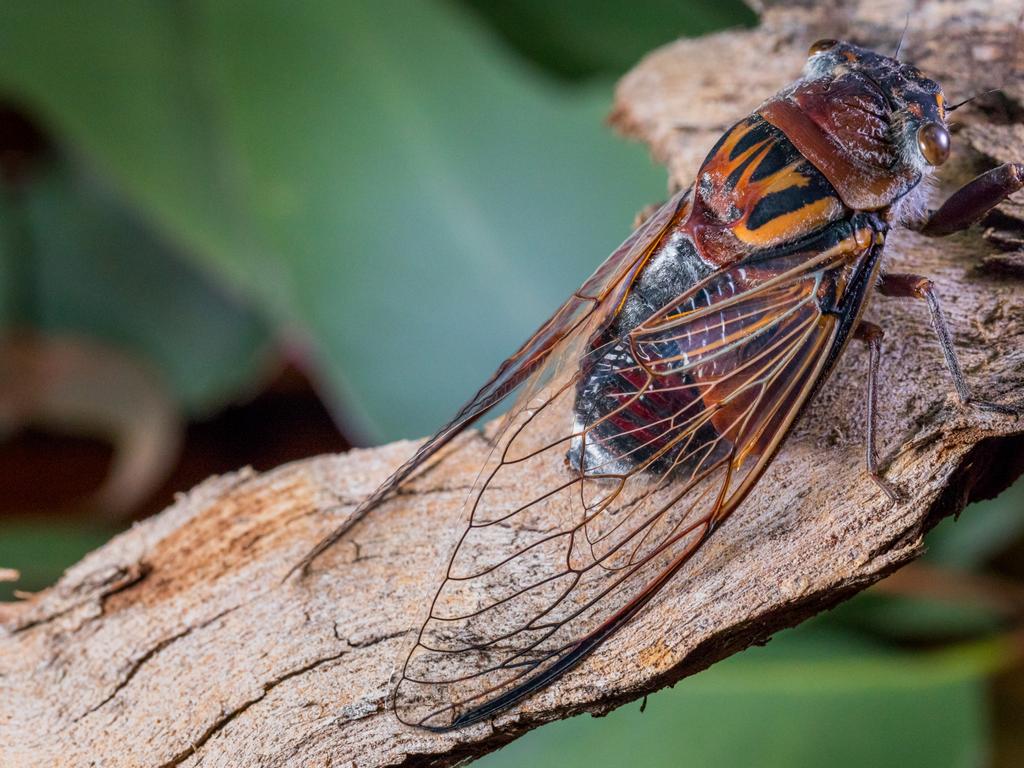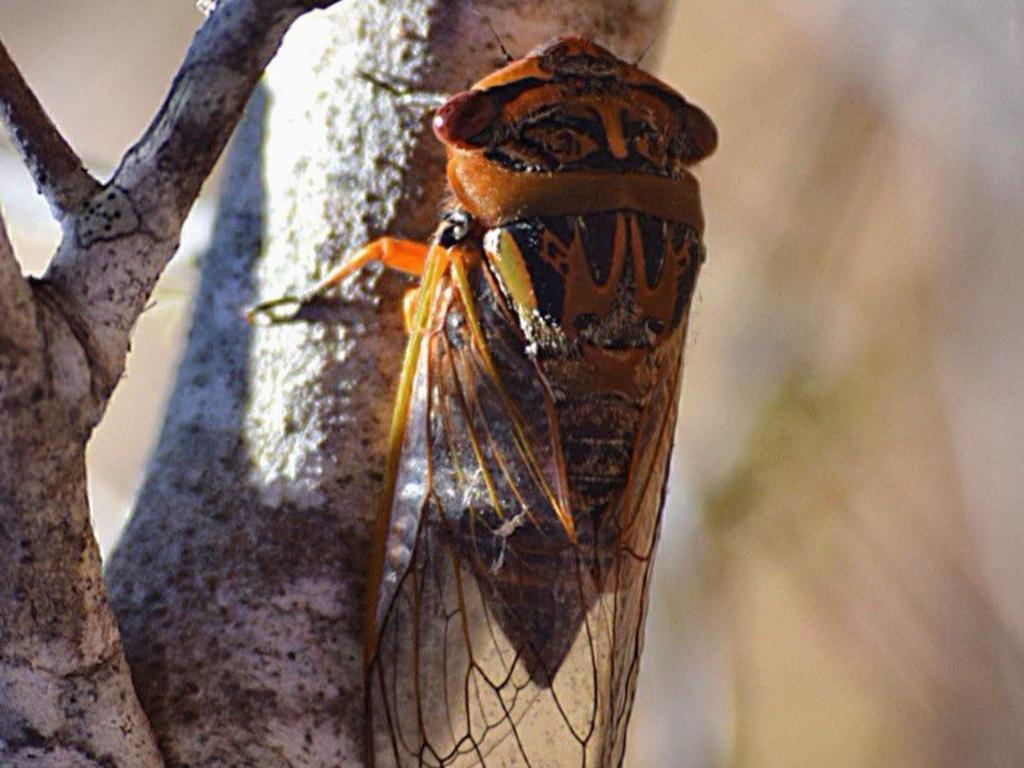Reason cicadas sound so much noisier this year
Summer means a lot of things: hot weather, long nights and loud cicadas. And those noisy insects seem to be turning up the decibels this year.
Summer means a lot of things: hot weather, long nights and loud cicadas. But are those noisy insects turning up the decibels this year?
You’re not alone in thinking the cicadas are louder than usual, and it’s because there are simply more of them around, according to Dr Michael Elias of the CSIRO’s Australian National Insect Collection.

This could be a result of the drought from 2017 to 2019 when there was significantly less rainfall than usual, leaving the cicadas – which thrive on tropical conditions – in drastically reduced numbers.
However, that all changed this year, with heavy rainfall creating wet enough conditions for the insects to feed and breed. Cicadas live off sap from tree roots and other plants and require moist conditions for their nymphs, which burrow deep into soil and spend up to seven years underground before hatching.
Once the soil has reached a certain moisture, a cicada will emerge out of the ground, climb a nearby plant and grow its wings, leaving behind a the nymph’s exoskeleton.
After the nymph has hatched into a cicada, its lifespan is usually a few weeks.
“I think what’s causing it is partly, if you think about the amount of rainfall we’ve had this century, (we) started off in a bit of a drought there and then had a few rain years and back into drought,” Dr Elias told 9News.
It’s been five years since the 2019 drought ended, giving cicadas a chance to get back in action and at a much faster rate.
“So the cicadas are becoming more noisy than they have been for quite a while, just because we haven’t really had a good patch of seven years,” Dr Elias said.
“It’s really probably just the fact that the ground is very wet, so there’s a lot of tree roots out there for them to feed on.”

Increased moisture in the soil had also decreased the mortality rates in juveniles, Dr Elias added.
Years of ongoing hot weather may also play a role in the insect’s life cycle, as warmer conditions can lead to shorter lifespans in adult cicadas.
“It is possible that we’re getting multiple generations emerging this year, just because we’ve had a few warm years,” Dr Elias said.
While cicadas are widely known for their raucous songs, only male cicadas make noise during summer.
Their rhythmical song, used to attract a mate and scare off predators, is created by rubbing their wings against a ribbed membrane on their abdomen, called a tymbal.
While the intensity of their buzzing can depend on the species, time of day and temperature, larger cicadas can produce sounds of up to 120 decibels – the same intensity as a concert, thunder or a jet plane departing.
Australia has about 250 different species of cicadas, though Dr Elias believes there could be up to 1000 undescribed species researchers aren’t aware of yet.
“Unless it’s like, an economically important species or super charismatic species, we probably don’t know a lot about it,” Dr Elias said.
Originally published as Reason cicadas sound so much noisier this year


